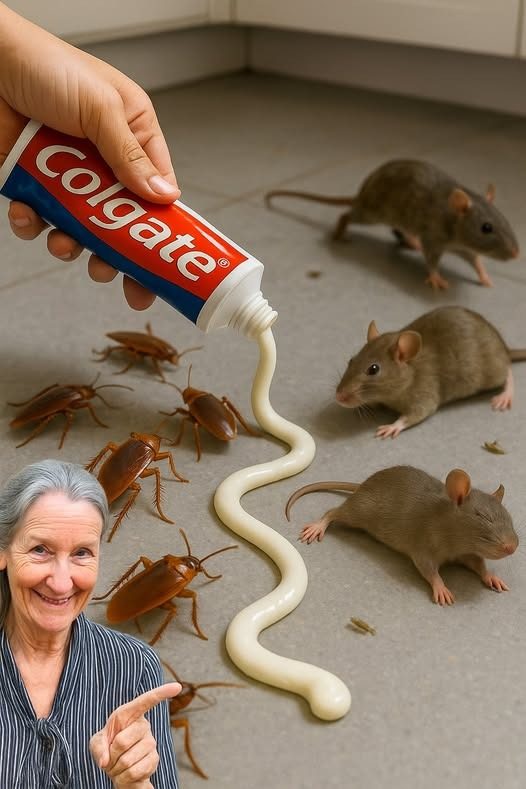Benefits of Using Toothpaste for Pest Control
-
Cost-effective: Toothpaste is inexpensive and easily available compared to specialized pesticides.
-
Non-toxic: Safe around children and pets when used properly, unlike many chemical pesticides.
-
Eco-friendly: Avoids polluting the environment with harsh chemicals.
-
Multi-purpose: Toothpaste can also clean surfaces while repelling pests.
Tips for Pest-Proofing Your Home Naturally
-
Seal Entry Points: Use caulk or steel wool to block holes. Toothpaste helps deter pests, but physical barriers are essential.
-
Maintain Cleanliness: Remove food crumbs, fix leaks, and store food in airtight containers.
-
Use Natural Repellents: Combine toothpaste with other natural deterrents like vinegar, lemon juice, or essential oils for stronger effect.
-
Regular Inspection: Check pest-prone areas weekly and reapply treatments as necessary.
FAQ: Common Questions About Using Toothpaste for Pest Control
Q: Is toothpaste really effective against pests?
A: Yes, especially mint-flavored toothpaste containing menthol oils and baking soda. It acts as a natural repellent and mild insecticide.
Q: Will toothpaste kill pests instantly?
A: Toothpaste works mainly as a deterrent and irritant. It repels and gradually harms pests but may not kill them instantly.
Q: Can toothpaste harm pets?
A: Small amounts used externally are generally safe. Avoid ingestion, especially toothpaste containing xylitol or fluoride.
Q: Can I use any toothpaste?
A: Mint-flavored, non-gel toothpaste without artificial colors or xylitol is best.
Benefits of Using Toothpaste for Pest Control
-
Cost-effective: Toothpaste is inexpensive and easily available compared to specialized pesticides.
-
Non-toxic: Safe around children and pets when used properly, unlike many chemical pesticides.
-
Eco-friendly: Avoids polluting the environment with harsh chemicals.
-
Multi-purpose: Toothpaste can also clean surfaces while repelling pests.
Tips for Pest-Proofing Your Home Naturally
-
Seal Entry Points: Use caulk or steel wool to block holes. Toothpaste helps deter pests, but physical barriers are essential.
-
Maintain Cleanliness: Remove food crumbs, fix leaks, and store food in airtight containers.
-
Use Natural Repellents: Combine toothpaste with other natural deterrents like vinegar, lemon juice, or essential oils for stronger effect.
-
Regular Inspection: Check pest-prone areas weekly and reapply treatments as necessary.
FAQ: Common Questions About Using Toothpaste for Pest Control
Q: Is toothpaste really effective against pests?
A: Yes, especially mint-flavored toothpaste containing menthol oils and baking soda. It acts as a natural repellent and mild insecticide.
Q: Will toothpaste kill pests instantly?
A: Toothpaste works mainly as a deterrent and irritant. It repels and gradually harms pests but may not kill them instantly.
Q: Can toothpaste harm pets?
A: Small amounts used externally are generally safe. Avoid ingestion, especially toothpaste containing xylitol or fluoride.
Q: Can I use any toothpaste?
A: Mint-flavored, non-gel toothpaste without artificial colors or xylitol is best.

